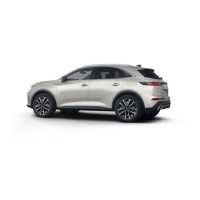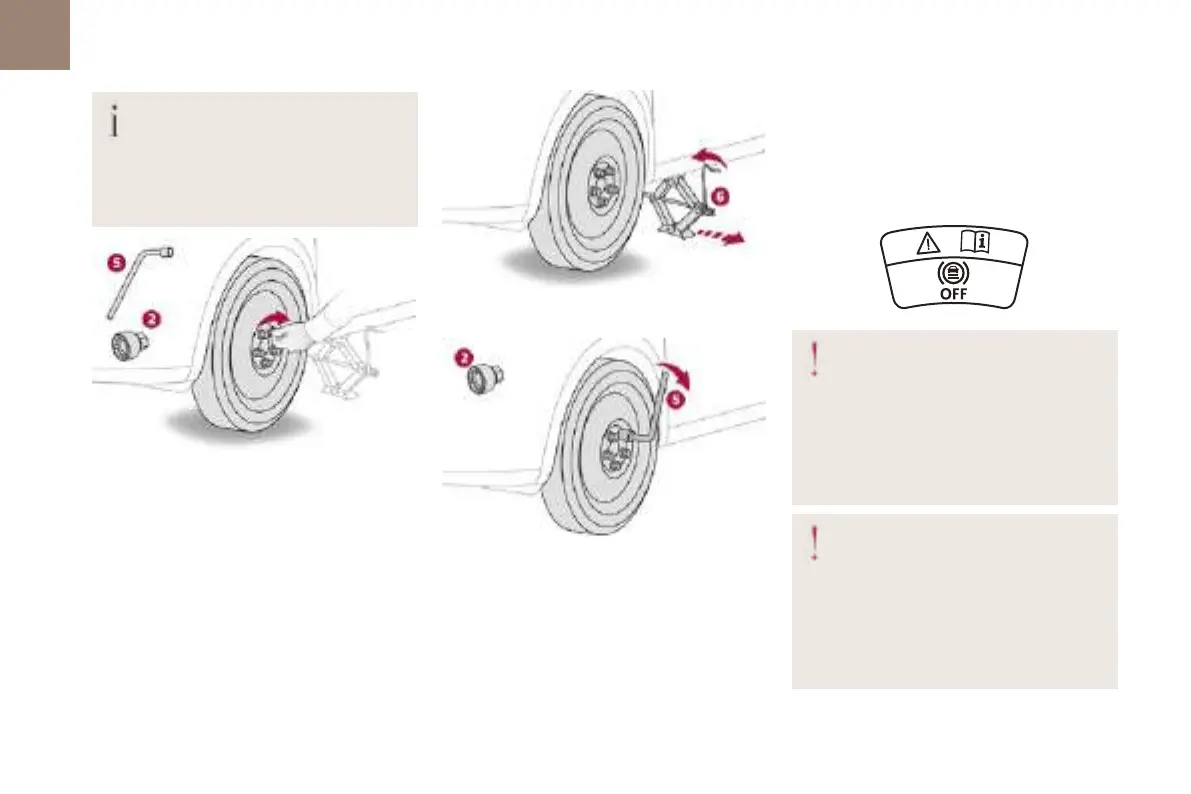184
In the event of a breakdown
08
Changing a bulb
In some weather conditions (e.g. low
temperature or humidity), the presence of
misting on the internal surface of the glass of
the headlamps and rear lamps is normal; it
disappears after the lamps have been on for a
few minutes.
The headlamps have polycarbonate
lenses with a protective coating:
– Do not clean them with a dry or abrasive
cloth, nor with detergent or solvent products.
– Use a sponge and soapy water or a pH
neutral product.
– When using a high-pressure washer on
persistent marks, do not keep the lance
directed towards the headlamps, lamps or
their edges for too long, so as not to damage
their protective coating and seals.
Changing a bulb must only be done with
the ignition off and after the headlamp /
lamp has been switched off for several
minutes - risk of serious burns!
Do not touch the bulb directly with your
fingers; use a lint-free cloth.
It is essential only to use anti-ultraviolet (UV)
type bulbs, so as not to damage the headlamp.
Always replace a failed bulb with a new bulb
of the same type and specification. To avoid
lighting imbalance, replace the bulbs in pairs.
Fitting a steel or "space-saver" type spare
wheel
If the vehicle is equipped with alloy wheels, the
washers do not make contact with the steel or
"space-saver" type spare wheel. The wheel is
secured by the conical contact of each bolt.
► Fit the wheel on the hub.
► Screw in the bolts by hand as far as possible.
► Pre-tighten the security bolt using the
wheelbrace5 equipped with a security socket2.
► Pre-tighten the other bolts using the
wheelbrace5 only.
► Lower the vehicle again fully.
► Fold jack6 and remove it.
► Tighten the security bolt using the
wheelbrace5 equipped with a security socket2.
► Tighten the other bolts using the wheelbrace5
only.
► Refit the bolt covers to each of the bolts
(depending on equipment).
► Store the tools.
After changing a wheel
Store the punctured wheel in the boot or,
depending on version, remove the central cover
first to store it beneath the floor in place of the
spare wheel.
With a "space-saver" type spare wheel
Deactivate certain driving aid functions
(Active Safety Brake, Adaptive cruise control,
etc.).
Do not exceed the maximum authorised speed
of 50 mph (80km/h).
Driving with more than one “space-saver” type
spare wheel is prohibited.
Visit a dealer or a qualified workshop as
soon as possible to have the tightness of
the bolts and the pressure of the spare wheel
checked.
Have the punctured tyre examined. After
inspection, the technician will advise you on
whether the tyre can be repaired or if it must
be replaced.

